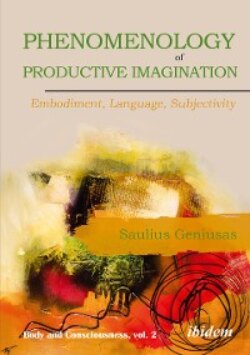Читать книгу Phenomenology of Productive Imagination: Embodiment, Language, Subjectivity - Saulius Geniusas - Страница 10
На сайте Литреса книга снята с продажи.
Conclusion
ОглавлениеWhat, then, is productive imagination, when conceptualized in such a large variety of frameworks? Since this concept has been provided not only with complementary, but also with contradictory determinations, it remains an open question whether it is transcendental or historical and socio-political; it also remains debatable whether productive imagination is grounded in language or rooted in more elementary levels of existence. In light of such a plurality of determinations, it is especially difficult to provide the concept with any kind of conceptual unity. Nonetheless, even as one reflects on this plurality, one could qualify productive imagination as a basic modality of intentionality that indirectly shapes the human experience of the world by forming the contours of action, intuition, knowledge and understanding.
I do not wish to suggest that this list of conceptual frameworks exhausts the ways that productive imagination has been conceptualized in the history of philosophy. I hold the view, however, that these conceptual frameworks act as a trailblazer for the analyses of productive imagination that we come across in other thinkers, as well as other movements, which I have here not commented on. Fortunately, the history of productive imagination is too rich to be comprehensively covered within any single introduction.
The goal of this short introductory chapter was to sketch the historical framework within which phenomenological analyses of productive imagination are to be understood and to offer a guiding answer to the question, how is productive imagination to be understood in the phenomenological tradition? Needless to say, a lot more can be said about how productive imagination has been conceptualized in the history of philosophy; however, given the goals of this study, the preliminary answers provided here will have to suffice. At this point, we are ready to turn to the phenomenological tradition, starting with Husserl, so as to see what this tradition has to offer to our understanding of the meaning and significance of productive imagination.
1 For more extensive treatments of Kantian and post-Kantian conceptions of productive imaginations, see Geniusas 2018 and Geniusas and Nikulin 2018.
2 For those determined to hold on to the Kantian conception, a possible way out would be to stick to the Kantian definition while at the same time maintain that what post-Kantian thinkers refer to as productive imagination is in fact a different phenomenon, which one could call either creative imagination or practical imagination. See Ferrarin 2018.
